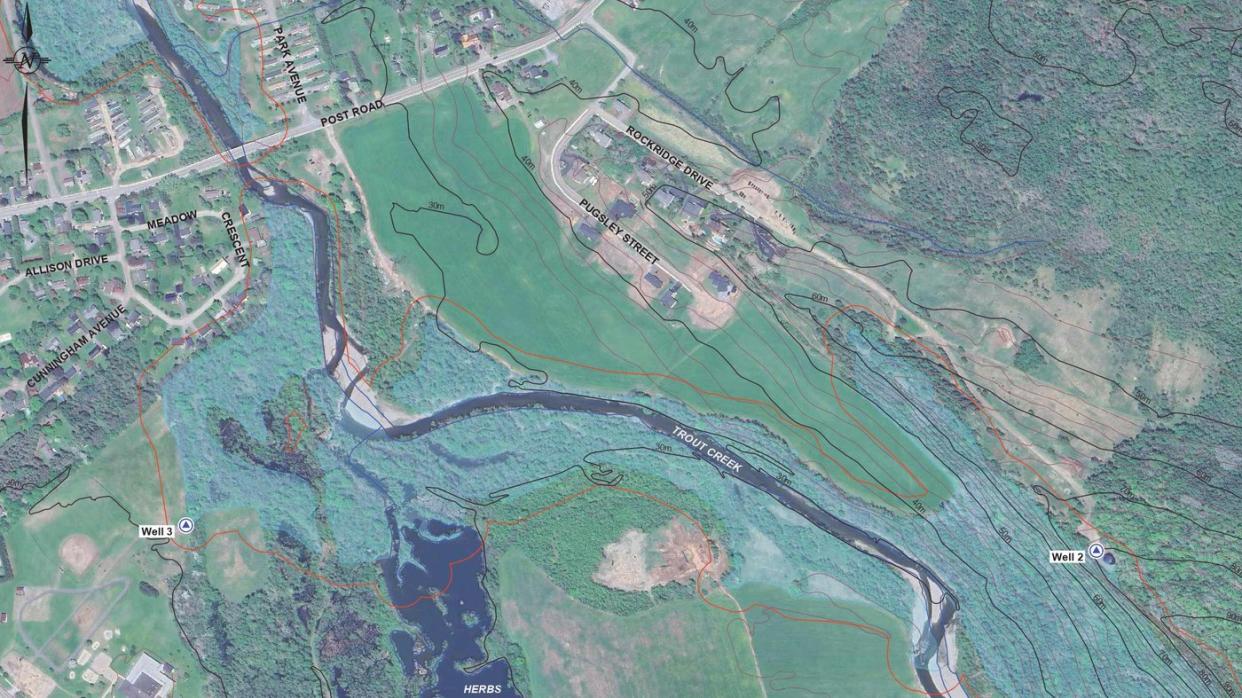One Sussex Ward 2 well online, another may need re-drilling: town

One of two problem wells in the former village of Sussex Corner is back working again, but the other may need re-drilling, the town says.
Sussex has been working to fix the wells in Ward 2 since a boil water advisory last July led to the closure of two of its three wells due to turbidity and to manganese, with water being routed from the former town's system in Ward 1. At a meeting June 17, works committee chair Doug Bobbitt said that one of those wells is now back online, but there's still manganese issues with another one.
"We're making progress, we're getting closer to the end, I'll tell you that," CAO Scott Hatcher said at the meeting.
The initial boil water advisory stemmed from faulty sample readings in the summer months, and led to an order from the province to install real-time chlorine and turbidity monitoring. In the process, issues with wells No. 2 and 3 cropped up. Hatcher told Brunswick News the town has invested just under $500,000 in repairs and new equipment to bring it back up to standards.
Hatcher said that the installation of SCADA real-time monitoring systems and time to assess the data have given them "more comfort" bringing well No. 2, which had turbidity issues, back online, knowing that it can be brought to a stop at any time if the issues return. Running both systems off of the Ward 1 water supply introduced "complications," including the delay of scheduled maintenance, and restoring the well has given them "flexibility," Hatcher said.
"We have high quality monitors in place now that continually analyze turbidity in the well," Hatcher said, saying that could allow the town to take action before complaints come in.
"We're in a much better spot in terms of how we operate all the wells because of the changes we undertook," he said.
Well No. 3 had issues with higher-than standard levels of the mineral manganese, which dated back to 2020, Hatcher said, and further testing has not shown a downward trend.
"It's been the town's choice ... that we wouldn't put a well back into production that didn't meet the Canadian drinking water standards where the first customer would be a school full of elementary children," Hatcher said.
Hatcher said in GWUDI wells, or ground water under direct influence of surface water, you can sometimes fix those issues by moving 100 feet or so to the side, saying the area is a "great producer as far as water."
The next steps include consultation with the province on a test well and an environmental impact assessment, a process that could take 14-16 months. He said a test well would cost just under $100,000, and the main well project would cost likely another $200,000, or less if the existing well house can be repurposed.
In May, the province's department of environment and local government also performed a regular water audit on the Ward 2 system, council heard at the meeting. Hatcher said the town's last audit was two years ago, but the former village system hadn't been audited since 2018, which he said was "extraordinary."
Hatcher said they opened the books to the province's staff, who found a few issues, including the limits on pumping rates had been exceeded and lack of a contingency plan for the water tower in Ward 2 as well as a maintenance plan, which will go before council in July. There were minor microbiology issues as part of sampling in the hot months that Hatcher said should be fixed as part of the new monitoring system.
"We've been consulting with both departments over the fall months ... to be compliant with the written orders," Hatcher said. "We've invested a considerable sum of money ... to make the necessary corrections to make that operating system compliant with the operating approvals."
At the meeting, Coun. Paul Maguire said water issues can "cause havoc," and though the town is spending money on its water system, it's "one of the most important things we do here."
Andrew Bates, Local Journalism Initiative Reporter, Telegraph-Journal


